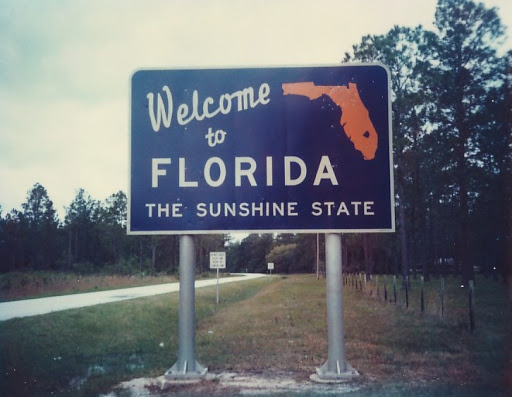Florida Roadway Signs for Beverage Manufacturers

If life is a highway, where do you stop for a drink?
With over 274,000 lane miles–seventh most in the United States (per Cubit’s Blog)–Florida offers a lot of ways for people to get to where they’re going, including breweries, wineries, and distilleries. To help people get there, the Florida Statutes authorize roadway directional signs for qualifying alcoholic beverage manufacturers located in the state.
Roadway Signs for Florida Breweries
Florida Statutes Section 563.13 authorizes the Florida Department of Transportation to install directional signs on interstate highways and other roads for certain breweries. To qualify, the Florida brewery must produce a minimum of 2,500 barrels of beer per year on the premises. The brewery must be open to the public at least 30 hours per week and must offer tours. A Florida brewery that wishes to apply for a roadway directional sign must apply to the the Florida Department of Transportation and pay the cost of installing and replacing the sign.
Roadway Signs for Florida Wineries
Certified Florida Farm Wineries are permitted to request a roadway directional signs pursuant to Florida Statutes 599.004. Certified wineries are those that participate in the Florida Department of Agriculture and Consumer Services’ Florida Farm Winery Program. Farm winery certification is limited to wineries that produce at least 250,000 gallons of wine annually (60% or more of which is made from state agricultural products), maintain at least 5 acres of land in Florida, and are open to the public for tours, tastings, and sales at least 30 hours each week. To install a roadway sign, a Certified Florida Farm Winery must apply to the Florida Department of Transportation and pay $250 and the cost of installing the sign.
Roadway Signs for Florida Distilleries
Directional signs are authorized for qualified Florida craft distilleries (Florida Statutes Section 565.03(6)). To qualify as a craft distillery, the distillery must produce no more than 75,000 gallons of distilled spirits annual and notify the Florida Division of Alcoholic Beverages and Tobacco (ABT). Like breweries and wineries, Florida craft distilleries wanting to have a roadway sign installed must apply to the Florida Department of Transportation and pay the cost of installing the sign.
Roadway Sign Application Process
The Florida Department of Transportation has authority for installing roadway directional signs. The process for applying for a new sign is governed by Florida Administrative Code Rule 14.51. Requests must be made in writing to the District Traffic Operations Engineer for the Department District where the sign is proposed. Beverage manufacturers that qualify for a roadway sign are not guaranteed to get one. All requests are subject to space availability and take into consideration a variety of factors, including local government recommendations. For roadway signs, the highest preference is given to destinations that attract a larger number of trips from distances greater than 100 miles.
Do you have questions about applying for a directional sign for your Florida beverage manufacturer? We’d love to discuss it with you. Contact us at contact@brewerlong.com to schedule a consultation.
Because we’re attorneys: This blog post is provided on an “as is” and “as available” basis as of the date of publication. We disclaim any duty to update or correct any information contained in this blog post, including errors, even if we are notified about them. To the fullest extent permitted by law, we disclaim all representations or warranties of any kind, express or implied with respect to the information contained in this blog post, including, but not limited to, warranties of merchantability, fitness for a particular purpose, title, non-infringement, accuracy, completeness, and timeliness. We will not be liable for damages of any kind arising from or in connection with your use of or reliance on this blog post, including, but not limited to, direct, indirect, incidental, consequential, and punitive damages. You agree to use this blog post at your own risk. Regarding your particular circumstances, we recommend that you consult your own legal counsel–hopefully BrewerLong.

